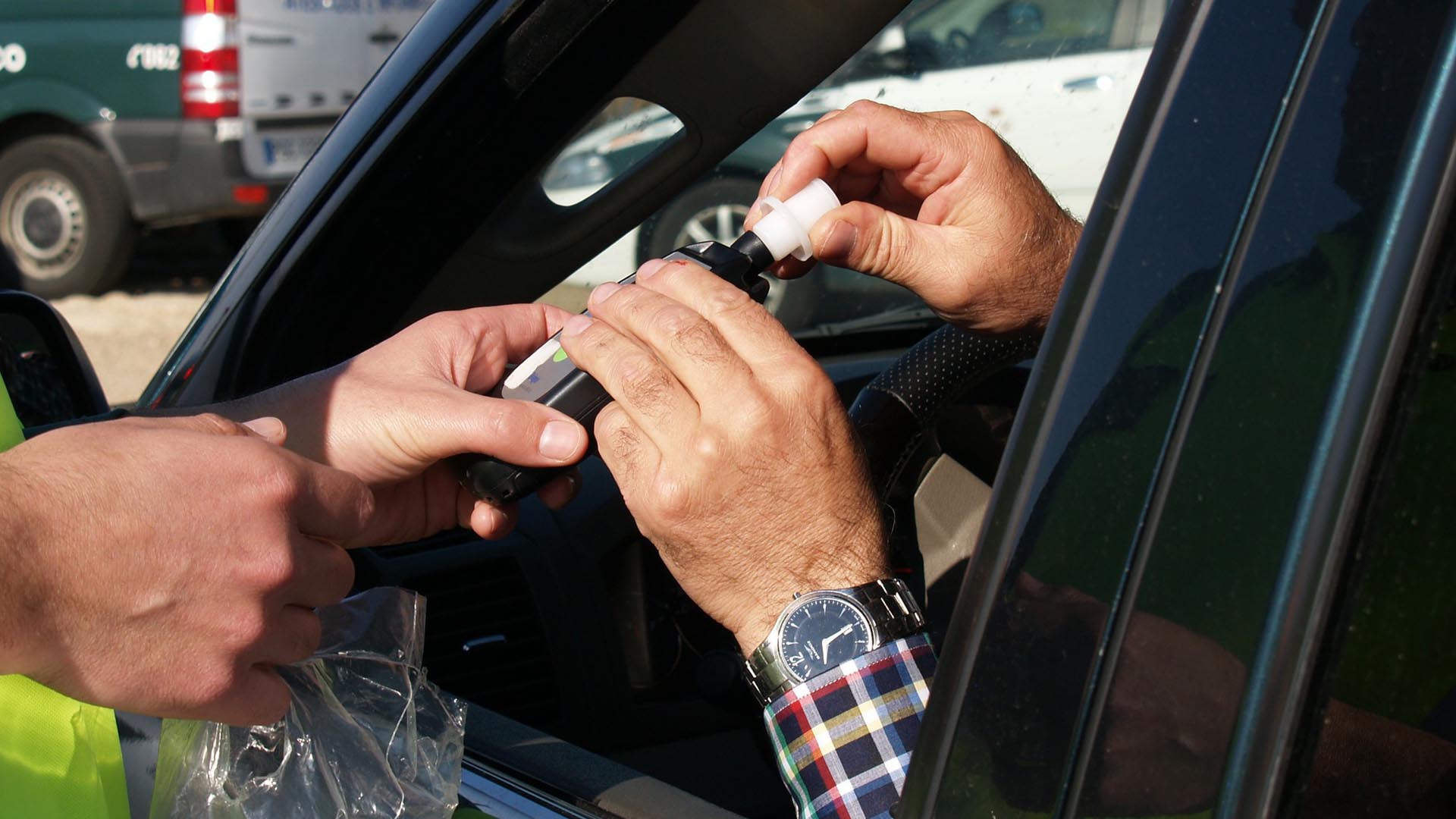If you have been charged with a DUI in the state of Ohio, you were probably given a breathalyzer test—either in the field or at the police station. Because there is a lot of information and misinformation out there regarding breathalyzer tests, it can be difficult to know whether you should submit to a breathalyzer test or refuse the test. The results of the test can determine whether you will be charged with DUI/OVI ‘per se’ or DUI/OVI ‘per se, high test.” The penalties differ for these charges. Breath-testing machines must be approved by the Ohio Department of Health.
At present, there are three approved machines—the BAC Datamaster, the Intoxilyzer 800, and the Intoxilyzer 5000. Ohio police officers also use portable breath testers in the field, however, the results of these portable breathalyzers are not admissible in court. Under Ohio statutes, a breathalyzer test must be administered and analyzed according to the methods approved by the DOH within three hours of vehicle operation. Having a highly experienced Ohio DUI attorney can make a significant difference in cases involving breathalyzer tests. Because of this, you must speak to a knowledgeable DUI attorney from Horwitz & Horwitz as quickly as possible.
What Happens When You are Stopped for an Ohio DUI?
An Ohio police officer must have a good reason to pull you over. This usually comes in the form of erratic driving, or breaking traffic laws or rules. If you undergo a chemical test that shows you are over the legal limit for alcohol or drugs, the officer can take your license immediately. This suspension will begin immediately and last from 90 days to five years, depending on whether you have any repeat offenses. This is known as an administrative suspension and occurs before any criminal conviction happens.
If you are found guilty of DUI/OVI, your penalties can vary widely depending on whether you have prior DUI convictions. Not only will you face severe legal penalties and the loss of your driver’s license, but you will also suffer collateral consequences such as the loss of your job, an inability to obtain employment, the loss of a CDL license, judgment from friends and family members, and much more.
What is the Difference Between a Breathalyzer Test and a Field Sobriety Test?
There is no legal requirement in the state of Ohio to take field sobriety tests, however, if you agree to perform the tests, the police officer will closely monitor and document your balance, coordination, and ability to follow directions. Field sobriety tests are usually administered as a way of determining whether a breathalyzer test is required. It is rarely in your best interests to agree to field sobriety tests, and in many cases, you could fail the tests even if you were stone-cold sober.
Women in particular have a disadvantage in that they could be wearing heels which are not conducive to successful field sobriety tests given by the side of the road on uneven surfaces. Those who are overweight, those with medical issues, and those taking prescription drugs all have an immediate disadvantage when engaging in field sobriety tests.
The accuracy of field sobriety tests was evaluated by the Southern California Research Institute and it was determined that the officers’ error rates for determining BAC levels through a field sobriety test was barely 47 percent. To improve that number, the tests were standardized, but even so today the horizontal gaze nystagmus has only a 77 percent accuracy rate, the walk-and-turn test has a 68 percent accuracy rate, and the one-leg stand has a 65 percent accuracy rate. All in all, field sobriety tests are not a scientifically proven method to determine the level of impairment, and you should probably always refuse these tests.
A breathalyzer test is not as optional as a field sobriety test. While you can refuse a breathalyzer test, it is not always in your best interests to do so. If you refuse the breathalyzer test your attorney has much less to work with because they cannot challenge the validity of the breathalyzer test based on maintenance or operator error.
How Does a Breathalyzer Test Work?
A breathalyzer test works by measuring the alcohol vapor in a person’s breath. When alcohol vapor is present, it reacts with an orange solution known as potassium dichromate, turning the solution green. This color change creates an electrical current which is then converted into a BAC value. In every state except Utah, the BAC limit is 0.08 percent, but a margin of error always exists (and can be as high as 20 percent) and depends upon a variety of factors:
- What type of breathalyzer machine is used
- Individual characteristics of the person being tested
- Whether the machine has been maintained and calibrated
- Other compounds in the breath
- The current temperature
- Whether the person administering the test has been properly trained and possesses a current certification
A 20 percent margin of error is significant when a person tests at .08, but his or her actual BAC could be as low as 0.06 percent—which does not reach or exceed the legal limit. Individual characteristics that can significantly alter BAC results include:
- A person’s body composition—a small individual will experience intoxication quicker in most instances (barring alcoholism and a tolerance to alcohol as a result). Conversely, since body fat does not absorb alcohol, those with higher body fat levels will almost always have a higher BAC level thanks to a higher proportional concentration of alcohol in the lean tissues of the body.
- Gender can be an issue, in that females have less alcohol dehydrogenase—the enzyme that metabolizes alcohol. This means that a female who is a similar size to a male will likely test a higher BAC even after drinking the same amount as the male.
- Foods eaten by the individual can also make a significant difference. Those with food in their stomachs will experience a slower processing and absorption of alcohol than those who have not eaten for several hours before drinking.
- Over-the-counter drug use (as well as the ingestion of illegal drugs) can have a significant effect on how the body processes alcohol.
- Specific alcoholic drinks can make a difference in the BAC. Obviously, mixed drinks generally have more alcohol than beer, but when hard liquor is mixed with a carbonated beverage like a soft drink, the body absorbs the alcohol more quickly.
- Health conditions including acid reflux, gastrointestinal reflux disease, diabetes, and kidney disease can all contribute to a false positive BAC reading.
- Your profession can contribute to an overly high BAC reading if you are a painter who regularly breathes in paint fumes—especially in a poorly ventilated area or if your job results in exposure to chemicals, adhesives, or varnish.
- The presence of residual mouth alcohol can result in a falsely high BAC. Certain things increase the amount of alcohol present in the mouth, including:
- Some medications like Nyquil and other cough medications
- Sugar-free gum
- Fermented beverages like Kombucha
- Eating large amounts of ripe or overripe fruit
- Certain types of bread
- Energy drinks
- Dental work like crowns and bridges can result in higher rates of false-positive tests as a result of alcohol being trapped in the small crevices within the dental work.
What Happens if You Refuse to Take a Breathalyzer Test?
If you are stopped on suspicion of drunk driving in the state of Ohio and you refuse to take a chemical test, the officer can take your license immediately. Ohio, like most states, has implied consent laws. This means when you obtain a driver’s license you are giving implied consent for a BAC test with probable cause. Further, if you are relatively sure your BAC is below the legal limit, then there is absolutely no benefit to refusing the BAC test because it could prove your innocence.
Why Should You Hire an Experienced Horwitz & Horwitz Attorney to Help You Navigate Your Drinking and Driving Charges?
It can be a frightening experience to be arrested and charged with DUI. Most people who are arrested for DUI have never had any other brushes with the law, so they are unsure what they need to do to protect their rights and their future. The best step you can take is to immediately hire a highly skilled DUI attorney. The sooner you have Jon Horwitz on your side, the sooner he can begin building a defense on your behalf.
Attorney Jon Horwitz and the legal team at Horwitz & Horwitz will immediately begin gathering evidence and looking at your DUI arrest from every angle, determining whether the arresting officer made mistakes, the breathalyzer was not accurate, there was no reason to stop you, or other mistakes were made. Contact Horwitz & Horwitz today to speak to a knowledgeable DUI attorney who can allay your fears while building a solid defense on your behalf. If you are in Centerville, Springboro, Beavercreek, Miamisburg, or Kettering, attorney Jon Horwitz is ready to assist you with your DUI/OVI charges.



